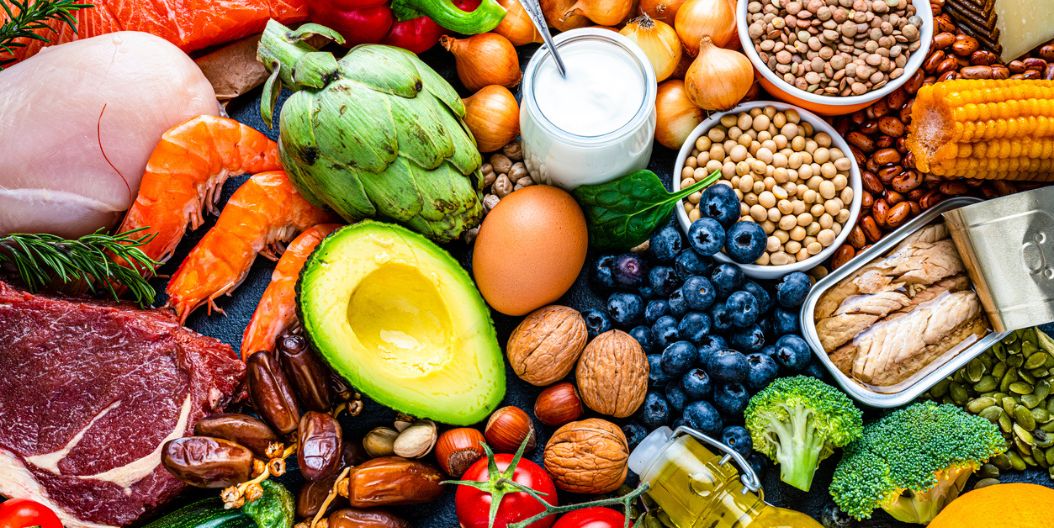Did you know that collagen is the most abundant protein in the human body? It plays an important role in constructing our skin, hair, nails, and connective tissues. And it doesn’t end there – its importance goes beyond mere structure.
As the interest in personal well-being grows, so does the curiosity around collagen and its potential impact on our bodies. Many people are wondering whether or not they should include it in their diet (either from food or as a supplement) and whether or not it has an effect on their weight.
Collagen supplements can be derived from various sources (like bovine, marine, and chicken), and people from all walks of life are incorporating collagen into their daily routines.
But amidst all the enthusiasm, the question remains: does taking collagen have any effect on your weight?
Today, we’ll take a good look at the relationship between collagen supplementation and if it affects weight. We’ll also shed light on how this vital protein fits into a healthy lifestyle and what you should know before adding it to your diet.
Table of content
What Is Collagen?
Collagen is like the body's natural building block. It’s a protein that's found in abundance in our skin, bones, muscles, tendons, and ligaments. Think of it as the glue that holds everything together: it gives our skin its firmness and helps our joints move smoothly. As we age, our body's collagen production decrease.
There are at least 16 types of collagen, but the most common ones in the body are Types I, II, III, and IV:
- Type I: This type accounts for 90% of your body's collagen and is made of densely packed fibers. It provides structure to skin, bones, tendons, fibrous cartilage, connective tissue, and teeth.
- Type II: This type is made of more loosely packed fibers and is found in elastic cartilage, which cushions your joints.
- Type III: This type supports the structure of muscles, organs, and arteries.
- Type IV: This type helps with filtration and is found in the layers of your skin.
Collagen sources vary, with the most common being bovine (cow), porcine (pig), chicken, and marine (fish) collagen. Each source provides different types of collagen. While marine collagen is rich in Type I, bovine and porcine collagen are made up of a mix of Type I and III. Chicken collagen, on the other hand, is a good source of Type II. These sources make collagen supplements so versatile and allow everyone to choose a product that best meets their individual health and wellness needs.
Also Read: What is the Best Way to Take Collagen?
Calories in Collagen: What You Need to Know
When it comes to collagen supplements, a common question revolves around their caloric content and how they stack up against other protein sources in terms of calories.
Understanding this can help you integrate collagen into your diet effectively, especially if you're mindful of your calorie intake.
Collagen supplements, which come in various forms like powders, capsules, and liquids, do contain calories, but the amount is relatively low.
Also Read: How Much Collagen Should You Take a Day?
For example, a typical serving of collagen powder might offer around 50 to 100 calories, primarily from protein. Purely Inspired Collagen Peptides provides 70 calories per serving while delivering a full 18 grams of protein,
This caloric content is comparable to other pure protein sources, which makes collagen a lean option for anyone who is looking to supplement their protein intake without significantly increasing their calorie consumption.
Drinking a protein shake made with collagen can even provide a feeling of fullness, which might lead you to consume fewer calories overall throughout the day.
Compared to other protein sources, collagen's calorie count is efficient. What do we mean by that?
Consider that a similar amount of protein from sources like meat, dairy, or legumes often comes with a higher calorie tag due to the additional fats and carbohydrates present.
Collagen's purity and focus on protein mean that you're getting the building blocks you want without any excess calories.
Also Read: Collagen Protein vs Whey Protein
It's also worth noting that the body uses protein (including collagen) in a variety of metabolic processes. These range from building and repairing tissues to creating enzymes. The efficient use of protein can support metabolic processes.
So, while collagen supplements add some calories to your diet, their high protein content and low-calorie count can fit well into a balanced nutrition plan. This is especially true for those looking to maintain a healthy, active lifestyle without sacrificing the benefits of added dietary protein.
Integrating collagen into your diet should be about balance. Adding it to nutrient-rich smoothies, soups, or morning coffee can enhance your protein intake without significantly increasing your daily caloric load. As with any supplement, the key is moderation and ensuring that it complements a diet rich in whole foods, fruits, vegetables, lean proteins, and healthy fats.
A scoop of collagen powder in your morning smoothie won't tip the scales, but it can contribute to your body's overall well-being and vitality. It can support your fitness results as part of a lifestyle that includes balanced nutrition and regular physical activity.
Also Read: Uncovering The Truth: Does Collagen Protein Build Muscle?
The Additional Benefits of Collagen
Collagen offers many benefits that extend well beyond what we have discussed so far. Its growing popularity is well-deserved, given its vital role in contributing to our well-being.
Made from grass-fed and pasture-raised cows collagen supplements offered by us are unique in nature. This collagen peptide supplement is clean, unflavored, and easy to digest. It offers added support for hair, skin, and nails from biotin, plus immune support from Vitamin C and zinc. Crafted simply to help you thrive every day, you'll appreciate the benefits in every scoop.
Incorporating Collagen into Your Diet Without Gaining Weight
Adding collagen to your diet can be an easy and very beneficial process, especially when you’re mindful of your overall calorie intake. Here’s how you can enjoy the advantages of collagen without affecting your weight management goals.
Also Read: Why Take Collagen on Keto?
1. Start with the Basics
Begin by incorporating collagen into your daily routine in small, manageable amounts. A scoop of collagen powder can easily be mixed into your morning coffee, tea, or water. This simple step guarantees that you start your day with a protein boost without adding significant calories.
2. Choose Collagen-Rich Foods
Beyond supplements, you can find collagen naturally in foods like bone broth, chicken skin, and fish with the skin on. These foods not only provide collagen but also come with other nutrients that benefit your body. When choosing collagen-rich foods, go for lean and healthy options to keep your diet balanced.
Also Read: Can Men Take Collagen & Why?
3. Incorporate into Meals and Snacks
Collagen powder is incredibly versatile and can be added to various recipes without altering their flavor. Here are a few ideas:
- Smoothies: You can blend collagen powder into your fruit and vegetable smoothies for an extra protein kick.
- Soups and Stews: Try mixing collagen powder into broths, soups, or stews. It dissolves easily and enriches your meals with protein without adding fats or sugars.
- Baking: You can substitute a portion of the flour with collagen powder in your baking recipes for a protein-enhanced treat.
4. Stay Hydrated
Drinking plenty of water throughout the day is vital, especially when increasing your protein intake with supplements like collagen. Staying hydrated helps maintain your metabolism and helps with general digestion and absorption.
Also Read: When to Take Collagen While Fasting?
5. Balanced Diet is Key
Adding collagen to your diet is most effective when part of a balanced nutritional plan. Make sure your meals are rich in vegetables, fruits, lean proteins, and healthy fats. Collagen should complement your diet and provide additional benefits without becoming the sole focus.
Also Read: Collagen Pills vs Powder - Which is Better & Why?
Collagen Powder Recipe Ideas
- Morning Boost Collagen Coffee: Stir a scoop of collagen into your morning coffee along with a splash of almond milk.
- Berry Collagen Smoothie: Blend a scoop of collagen with a mix of berries, spinach, a banana, and water or almond milk for a nutritious breakfast or snack.
- Hearty Bone Broth Soup: Prepare a bone broth soup and mix in collagen powder for extra protein. Add vegetables like carrots, celery, and kale for a healthy and satisfying meal.
- Tropical Collagen Yogurt Parfait: Layer Greek yogurt with a scoop of collagen powder, fresh mango, pineapple, and a sprinkle of coconut flakes. Top with a drizzle of honey for a delicious breakfast or dessert.
- Collagen-Infused Oatmeal: Cook your oatmeal with almond milk and stir in a scoop of collagen powder. Add cinnamon, chopped apples, and walnuts for a warm, protein-packed breakfast.
- Green Goddess Collagen Smoothie: Blend a scoop of collagen with avocado, spinach, cucumber, green apple, and a bit of ginger with water or coconut water for a revitalizing green smoothie.
- Collagen Peptide Energy Balls: Mix collagen powder with oats, peanut butter, honey, chia seeds, and dark chocolate chips. Roll into balls and refrigerate for a quick, energy-boosting snack.
- Protein-Packed Pancakes: Add a scoop of collagen powder to your pancake batter for a protein boost. Serve with fresh berries and a light drizzle of maple syrup for a satisfying breakfast.
- Collagen-Boosted Hummus: Blend chickpeas, tahini, lemon juice, garlic, and a scoop of collagen powder for a twist on traditional hummus. Serve with vegetable sticks or whole-grain crackers for a healthy snack.
- Refreshing Collagen Lemonade: Stir a scoop of collagen into a glass of lemonade for a refreshing drink. Add a splash of sparkling water and garnish with fresh mint for an extra special touch.
Adding collagen to your diet doesn’t have to be complicated or lead to weight gain. With these strategies, you can enjoy the many benefits of collagen while maintaining a calorie-conscious, balanced diet. And: just get creative! There are so many fun recipes and ideas how you can make collagen (especially in powder form) a part of a balanced diet.
Also Read: When is the Best Time to Take Collagen?
Make an Informed Choice for Your Health
So, does collagen make you gain weight? The simple answer is: no if you incorporate it wisely. The more elaborate answer is that it should always be part of a balanced diet.
Choosing the right supplements for your diet is about more than just following trends – it's about making informed decisions that align with your personal goals and nutritional needs.
When you consider adding collagen or any supplement to your regimen, take a moment to think about what you’re trying to achieve. Maybe you're looking for a balanced way to fill nutritional gaps in your diet. Whatever your goals, remember that supplements are most effective when used in conjunction with a nutritious diet and a healthy lifestyle.
Listen to your body, do your research, and if you’re unsure, ask a healthcare professional to help you tailor a supplement strategy that best supports your individual goals.
Your path to well-being is uniquely yours. With the right tools and knowledge, you can make choices that empower your lifestyle today and into the future.



